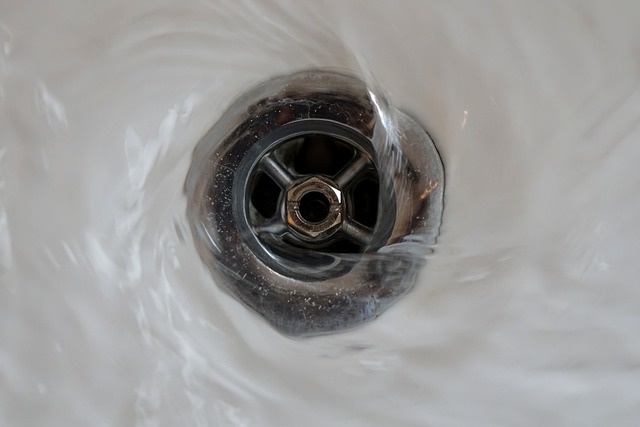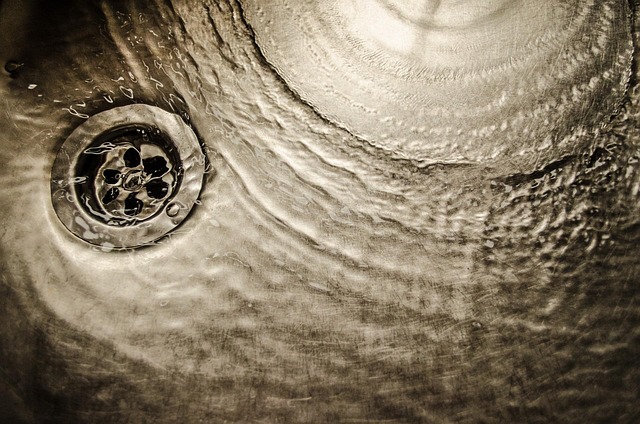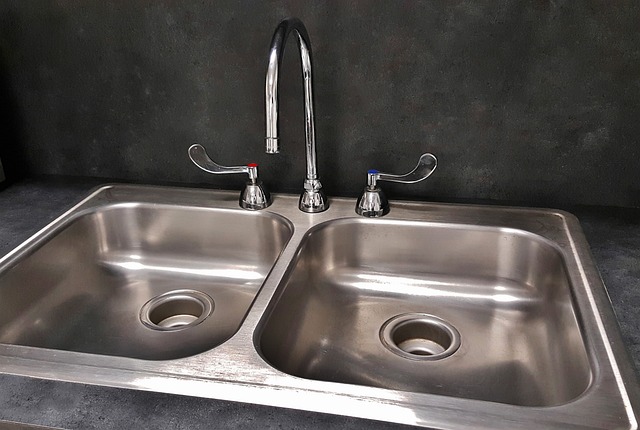Homeowners should be vigilant about Signs of a Clogged Drain such as slow drainage, standing water, odors, and gurgling noises. Regular hot water flushes, drain covers, and mindful disposal can prevent blockages. If standard remedies fail or symptoms persist (continuous water flow, gurgling, pooling), call a professional plumber to avoid costly repairs and potential home damage.
Tired of that persistent gurgling noise or an ever-slowly draining sink? Recognizing the early warning signs of a clogged drain is crucial to avoid costly repairs. This article breaks down the common causes and prevention tactics for blockages, guiding you through the process of knowing when it’s time to call in the professionals. Learn to identify the subtle signals your drains are sending—the key to maintaining a smooth-running plumbing system. From recognizing the signs of a clogged drain to expert interventions, gain valuable insights for hassle-free drainage.
- Recognizing Common Drain Issues: The Early Warning Signs
- What Causes Blockages and How to Prevent Them
- When It's Time to Call a Professional Plumber
Recognizing Common Drain Issues: The Early Warning Signs

Many homeowners often overlook the subtle signs of a clogged drain until it’s too late, resulting in costly repairs. However, being proactive is key to avoiding unexpected plumbing disasters. Common drain issues manifest in various ways; paying attention to these early warning signs can help you address problems before they escalate.
One of the most evident signs of a clogged drain is water that drains slowly or not at all. This could be noticeable during routine activities like bathing, washing dishes, or running the dishwasher. Additionally, you might observe standing water in the sink or bathtub, indicating a blockage upstream. Unpleasant odors wafting from the drain are another red flag; this often signals the presence of organic matter or grease buildup. If you hear gurgling sounds coming from the pipes or notice lower water pressure throughout your home, these could also be indicators of a clog. Regular maintenance and promptly addressing these signs of a clogged drain can save you money in the long run.
What Causes Blockages and How to Prevent Them

Drain blockages are often caused by a build-up of grease, hair, and other debris that accumulate over time. Common culprits include pouring grease down the sink, using chemical drain cleaners that can strip away protective coatings, and disposing of non-biodegradable items like sanitary products or food scraps into the drain. To prevent these blockages, it’s essential to be mindful of what goes down your drains.
Regular maintenance is key; use hot water regularly to flush out any grease or built-up residue. Install drain covers to catch hair and other large debris. Be cautious when using chemical cleaners, opting for natural alternatives whenever possible. Lastly, educate everyone in the household about proper disposal practices, ensuring no foreign objects block the drain system, thereby avoiding costly repairs and keeping your drains flowing smoothly.
When It's Time to Call a Professional Plumber

If you’ve tried the standard remedies, like using a plunger or drain cleaner, and your clog persists, it’s time to call in a professional plumber. Continuously running water, gurgling sounds coming from the drains, or pools of water forming around drains are all signs that indicate a more severe blockage. These could be warning signs of a serious issue like broken pipes, tree root intrusion, or a significant buildup of grease and debris – problems that require specialized tools and expertise to fix.
Don’t delay in seeking professional help; the longer you wait, the costlier the repair will be. A small clog can lead to larger, more expensive damage if left unattended, including water damage to your home, sewage backup, or even structural issues. A qualified plumber will identify the root of the problem and provide effective solutions to prevent future clogs.
Regularly monitoring your drains for potential issues can save you from costly repairs. By recognizing early warning signs like persistent slow drainage or unusual odours, you can take proactive steps to prevent blockages. Understanding the common causes, such as foreign objects or tree roots infiltrating pipes, allows for effective prevention strategies. If these efforts fail and you encounter severe clogs or unknown problems, it’s time to call a professional plumber for efficient and lasting solutions. Remember, addressing drain drama promptly can protect your property and wallet from unexpected troubles.
